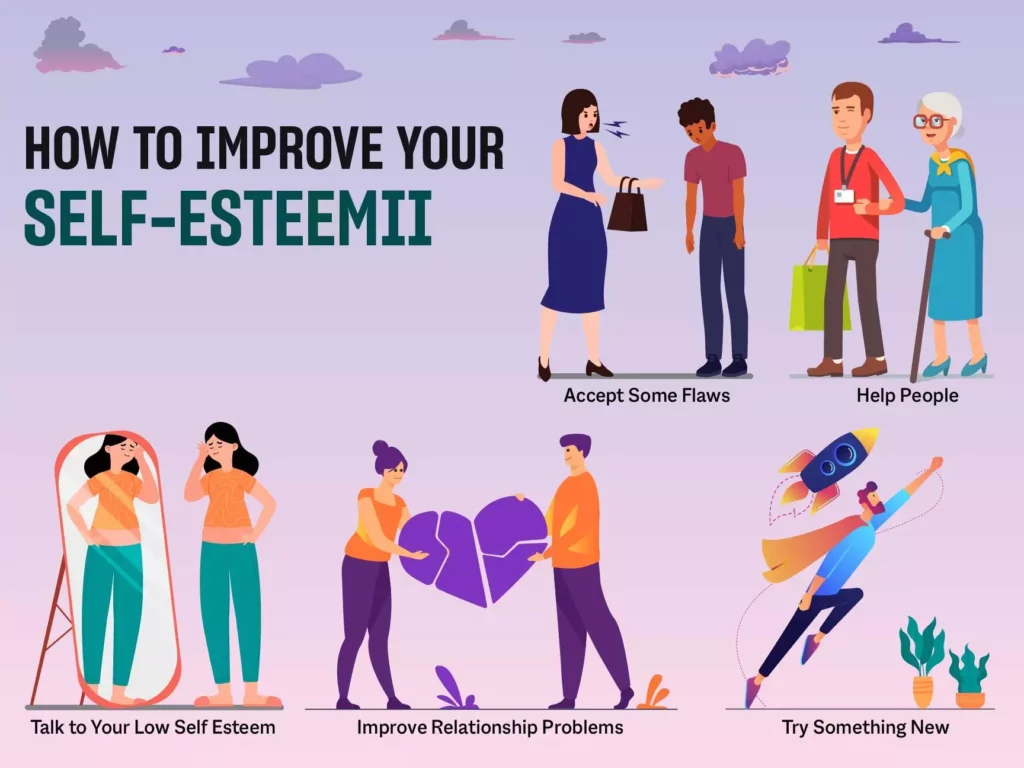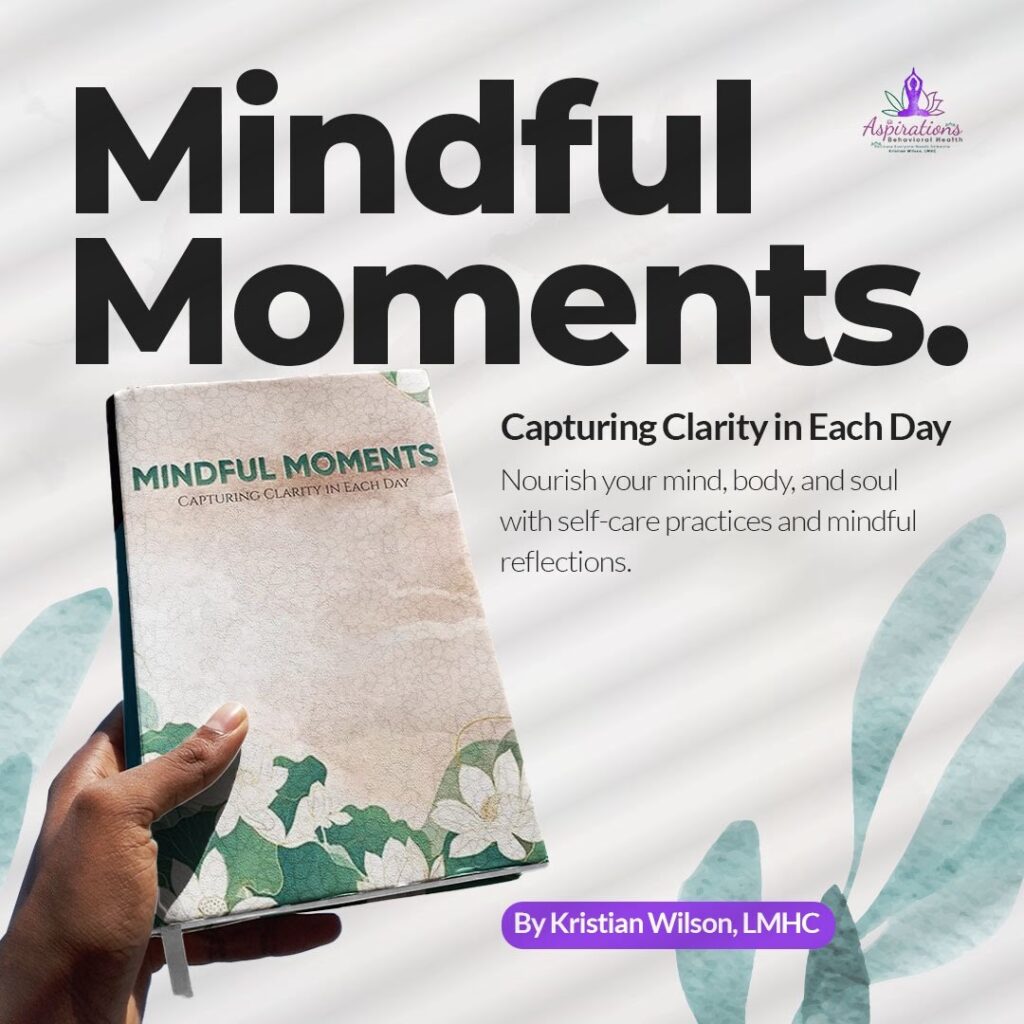Our mental health includes all aspects of our physical, psychological, emotional, and social well-being. It affects our attitudes, feelings, and actions. It also impacts how we handle stress, relate to people, and make wise judgments. We frequently experience periods where our mental health takes a meteoric hit. It has a negative effect on our health and brain. We participate in a support group for mental health to counteract such destructive power. It is regarded as one of the most remarkable treatments available today. They can support, encourage, and console the other group members by sharing their experiences and receiving the same in return.
Types of Support Groups
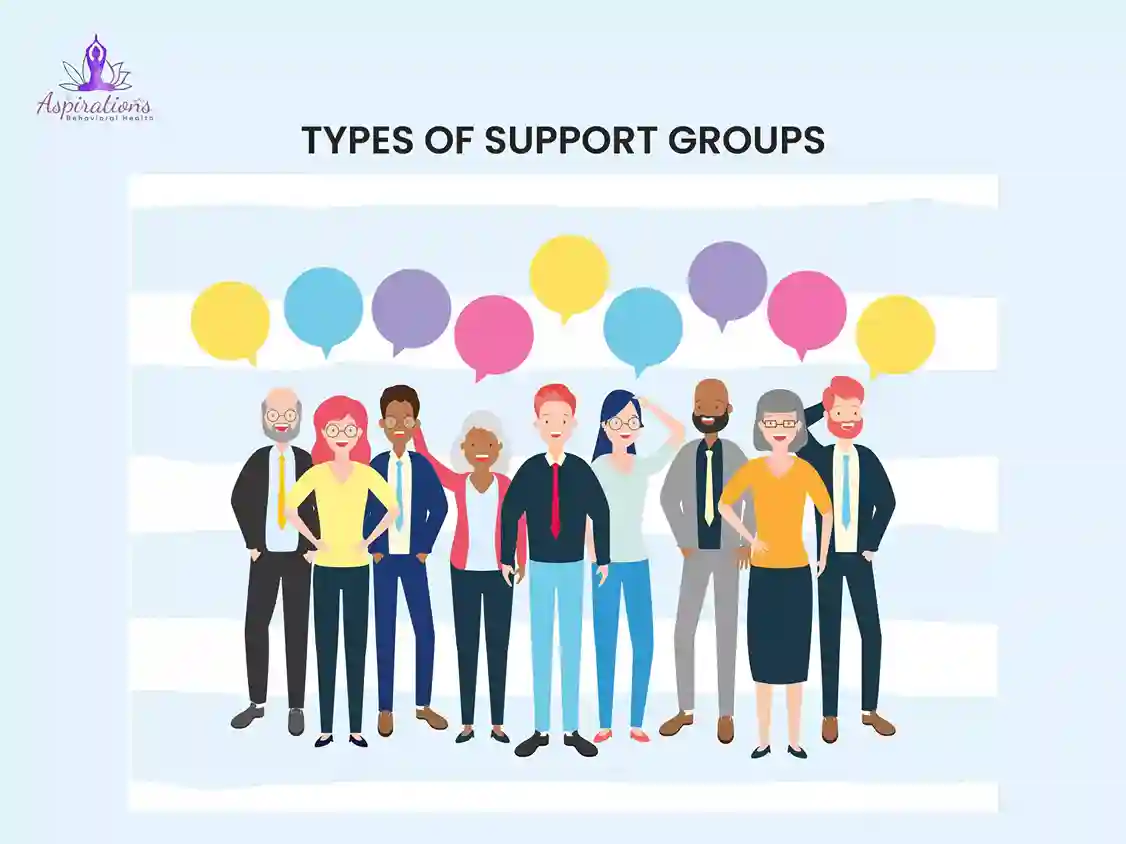
You might select a different support group for mental health, depending on what you’re going through. In the previous few years, mental disturbances have taken over the lives of many individuals. Hospitals frequently get reports of suicidal patients owing to mental illness in children. People are frequently mired in negative-emitting behaviors, including drug addiction, mental health issues, and family issues. By joining one of the three types of support groups for people with mental illness—a mutual support group, a 12-step group, or a support group—, you can deal with any of them. Remember that no matter whatever support group you select, it is not a replacement for medical attention.
Mutual Support Groups:
Peer-led groups that meet within a group of people are called mutual support groups. Usually, a group gathers in a room or hallway to discuss their life challenges. This exercise has been popular for a long time and is thought to be productive. People converse about their struggles, experiences, and other personal issues. They receive moral support from this exercise, which also lessens their burden. You may find the answer to your problem along the process. Group members share what works for them and encourage others to follow suit. The majority of the time, mutual support groups are free to join.
12-Step Self-Help Groups:
The 12-Step program is a peer-led support group that helps people eliminate drug and alcohol issues. A support group that mentally encourages a person to leave all the drug-related problems that cause our anatomy to fall apart. 12 steps usually follow the recovery program. Over the past few years, many have fallen into the pit of suicidal thoughts due to addiction problems. The 12-Step movement can be a powerful and helpful force for many people, but some struggle with what they interpret as a vital religious element of the program.
Therapy Groups:
A therapy group differs somewhat from a 12-step and mutual support program. It is a type of group therapy in which people with comparable conditions are gathered together. The therapist then carries out the steps necessary to treat the illness. If all patients have mental illnesses, the therapist will carry out interventions to address the underlying problem that impacts the brain. Various mental health concerns can be treated in therapy groups. A therapy group could be expensive, but health insurance might pay for it. Due to the rise in mental diseases, virtually everyone participates in these therapies in various nations.
Online Support Groups:
An online group for mental health is an excellent alternative if you live too far away to make the meeting. Peers can connect online and use video conferencing to discuss their issues. Since we are now in the modern period, this practice is advantageous for those unable to attend physically. The therapist can solicit everyone’s input and then use an internet portal to offer remedies. The therapist won’t be able to read your face or body language throughout the internet session, which is one drawback that has been mentioned. Additionally, the ability of participants to show affection for other group members may be restricted in an online session.
Advantages of Mental Health Help Groups
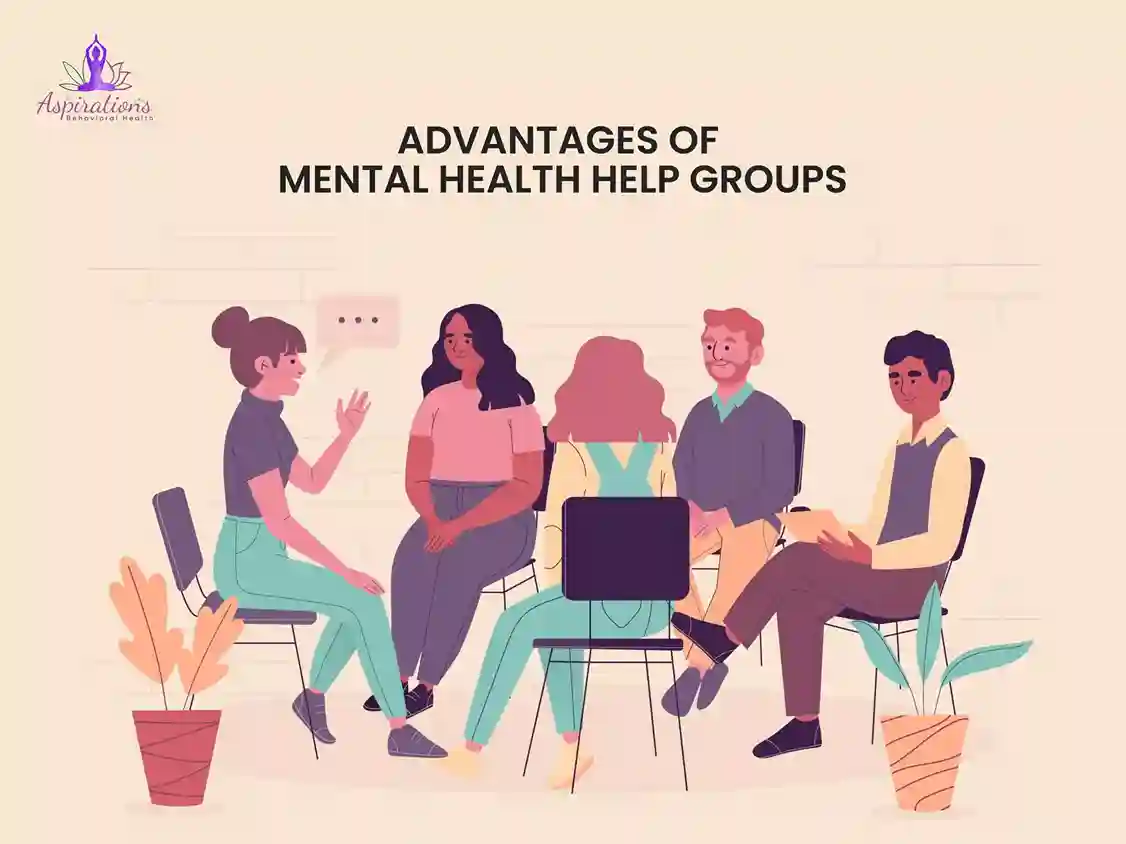
At first, getting involved in group support can be a little intimidating. Introverted people refrain from sharing their life experiences with others. But once you get the hang of it, you’ll feel comfortable sharing your experiences. Mental health groups are now being performed in many countries and are incredibly beneficial.
Boosts Your Confidence:
Many individuals feel relieved after attending the session. You could feel hesitant to share your life experiences with others initially, but after a few sessions and witnessing how others share with assurance, you’ll start to relax. Additionally, you’ll start to feel more optimistic and self-assured.
You Are Not Alone:
You’ll get relief once you learn that others like me suffer from the same mental illness or addiction to particular substances. Many people are lonely during the first few meetings, but the group’s support helps them overcome their loneliness as they continue.
Solution to Your Problems:
Everyone in a mental health group shares their circumstances and life experiences. The group is similar to a get-together of friends where you and your pals discuss problems and look for solutions. You never know—while talking to someone, you might uncover the answer to your issues.
Stress Level Reduced:
Serious mental health problems can result from keeping things to oneself. To lighten the load, each person needs to get involved in places where they may express their emotions. By participating in a mental health support group, you can express your emotions and reduce stress. This is a sign of improvement and a step in the right direction.
Gaining Ray of Hope:
We learn from a mental health support group that anyone can change if they have the guts to overcome their issues and addiction. Many therapists have sat in your position in the past as victims. You adopt their optimism when you observe others in group support moving toward recovery.
Affordable and Safe:
No medicine is used in mental health groups; instead, morale support is provided. The effectiveness and ingenuity of the therapist, as well as his performance, determine the outcome of the entire session. You can recover independently in only a few weeks without using the medicine.
Helping Others:
You go through multiple sessions of groups for mental health wellness. Always try to determine which session is the catalyst for your transformation. It’s time to help others by inspiring them after you begin to feel better and notice the positive difference in yourself.
Promotes Social Skills:
People can relate to you when you share your experiences with them. Groups provide the chance to re-engage with people and ease that feeling of isolation. Being a part of a group demonstrates your interpersonal skills. Who knows, you’ll meet your ideal partner during the mental health session.
Tackling Addiction:
Due to their addiction issues, many people attend mental health counseling. A mental health appointment gives you internal support as you battle your issues. You can get inspiration from other recovering addicts during the session to help you fight the addiction.
Anger Management:
One of the causes of adverse effects on your health and brain is anger. You engage in various activities during the session, including sharing the things that bother you. Once you join a mental health group, you’ll meet many others who struggle with anger and can work together to find solutions.
Negative Effects of Mental Health Help Groups
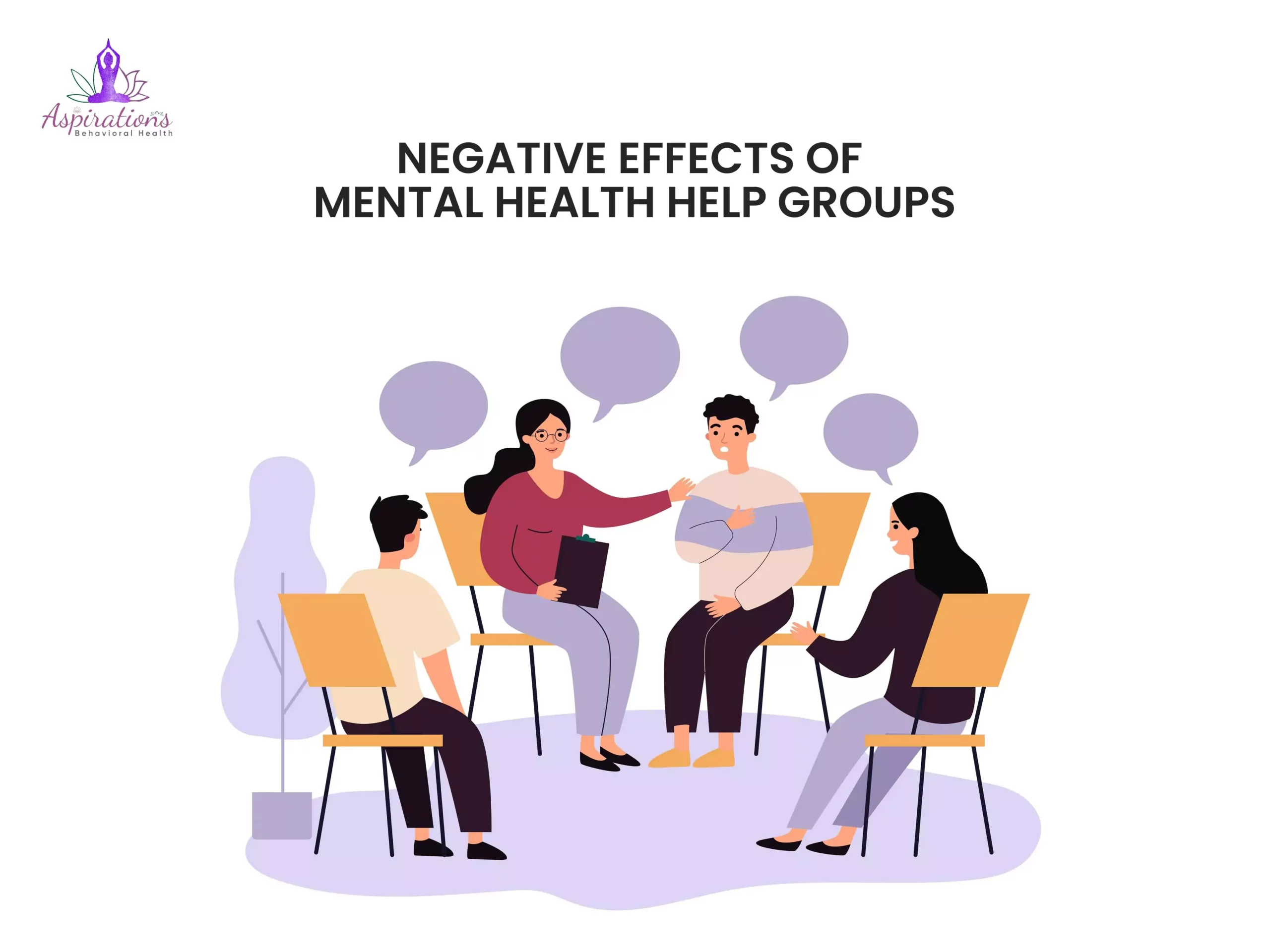
Many people think that working one-on-one rather than in a group is preferable. You never know which group member will violate the agreement and reveal your private information to others. It is awkward to share and express your sentiments in front of strangers, no matter how at ease you are.
The following are a few adverse effects of enrolling in a mental health group:
Fear of Sharing too Much:
You see that everyone is discussing their life experiences in a group session, so you open your largemouth and start talking nonstop. You might not be aware of the possibility that some people know you or are related to you. Doing this, you risk telling someone you know about your dark secret.
Not Feeling Relaxed:
You feel considerably more at ease when you talk to someone one-on-one rather than in front of a group. Many prefer one-on-one group support because they can express themselves more freely in private. Let’s be clear: You will be the center of the other person’s attention.
Self-doubts:
The major issue in any mental health support group is that you start to compare yourself to others. When people start sharing their achievements, you doubt your progress. This can put you in a state of jealousy and competitiveness. Instead, enroll yourself in a one-to-one session.
Lack of Motivation:
Being more introverted, many people struggle with motivation during group sessions. A person becomes unmotivated as a result of this. If it’s your first day, you’ll feel totally out of place because you won’t know what to say, and everyone else seems so sure of themselves.
Not Being the Center of Attention:
The saying “the squeaky wheel gets the grease” seems true in many groups. As a result, unlike individual support, the amount of intervention is less concentrated and intensive for any person. The following are some drawbacks people may encounter in group therapy: Not being the center of attention.
No Flexible Timings:
Groups frequently have scheduled meetings. More flexibility is needed for scheduling group support within one’s schedule. Enrolling in an online health support group makes everything much simpler because you can communicate with your peers anywhere in the world.
Not Fit for Everyone:
A Support group may be helpful for some people, but for others, it may have the opposite effect. Every person is unique and has a different nature. Some people might not feel at ease discussing their issues in a group — particularly those who are exceedingly introverted, antisocial, impulsive, and passive-aggressive.
Personality Clash:
There may be a sizable attendance during the support group lesson. The likelihood of someone having the same issues and personality as you is higher. Everyone’s focus is divided when two people of the same type are present. The support group class becomes useless in this situation.
Receiving the Wrong Message:
When a person talks about his drug addiction, he recalls how wonderful it was and how it made him feel better. Suppose even one person during the session has the wrong impression of him. The entire cause being backed by the group is rendered useless.
Fear of Being Judged:
The biggest obstacle in your path is the fear of criticism. Discussing your life experiences and personal struggles, nobody dares to be vulnerable in front of strangers. People can stare at you with gleaming eyes. What if you are the only addict in the room?
How Effective Are Online Mental Health Help Groups?
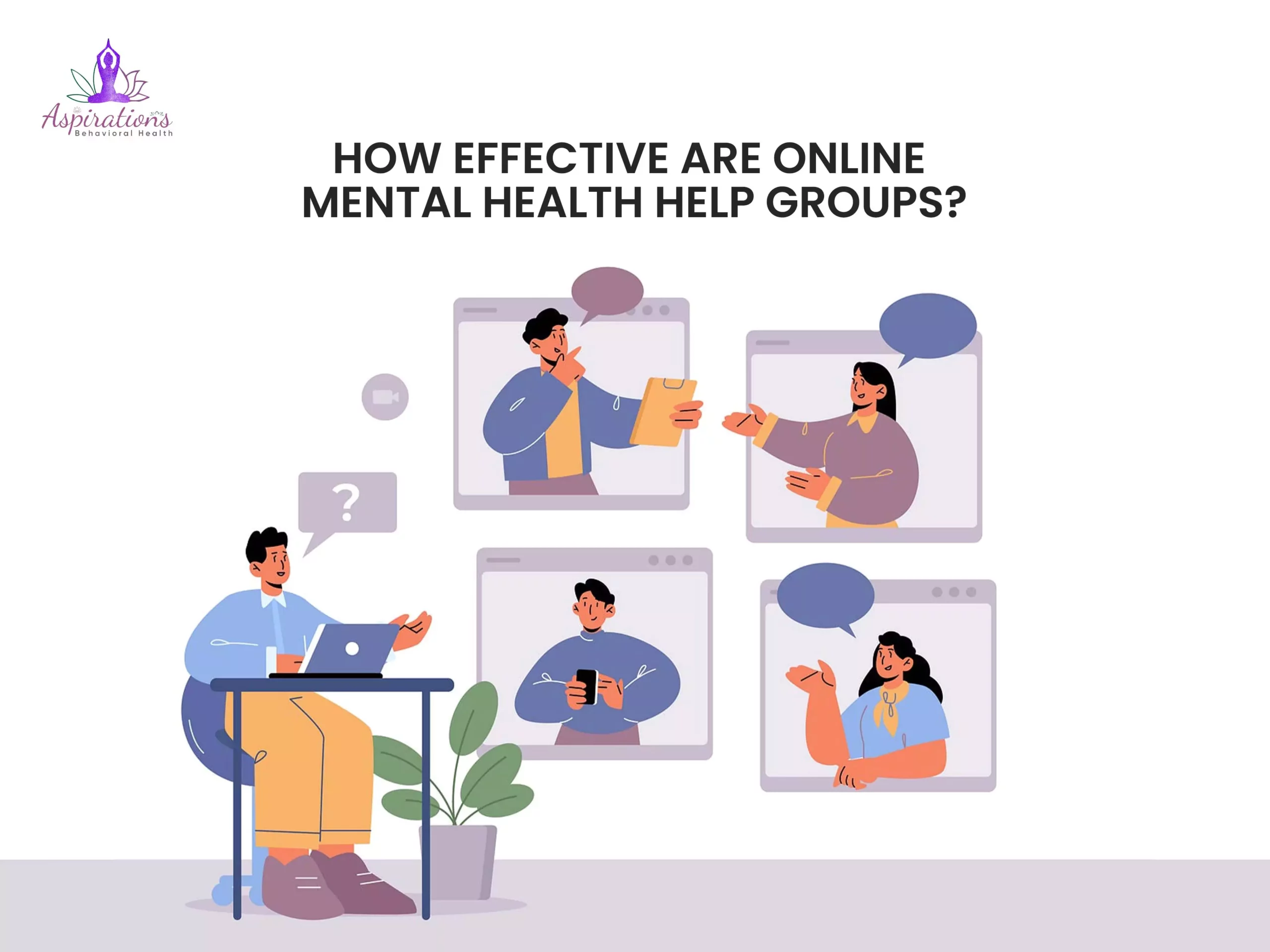
A psychological therapy called a mental health group focuses on the client’s emotional and mental well-being. It is a type of psychotherapy that tries to enhance a person’s quality of life if they suffer from depression, anxiety disorders, or other mental illnesses. Unlike traditional talk therapy, mental health groups work with clients to teach them new coping mechanisms and enhance their connections with family, friends, and coworkers. These groups typically consist of more than one individual, such as a psychiatrist or psychologist. It is simpler for people to attend the session from any location, thanks to the availability of these therapies online.
How to Find a Community Support Group for Mental Health?
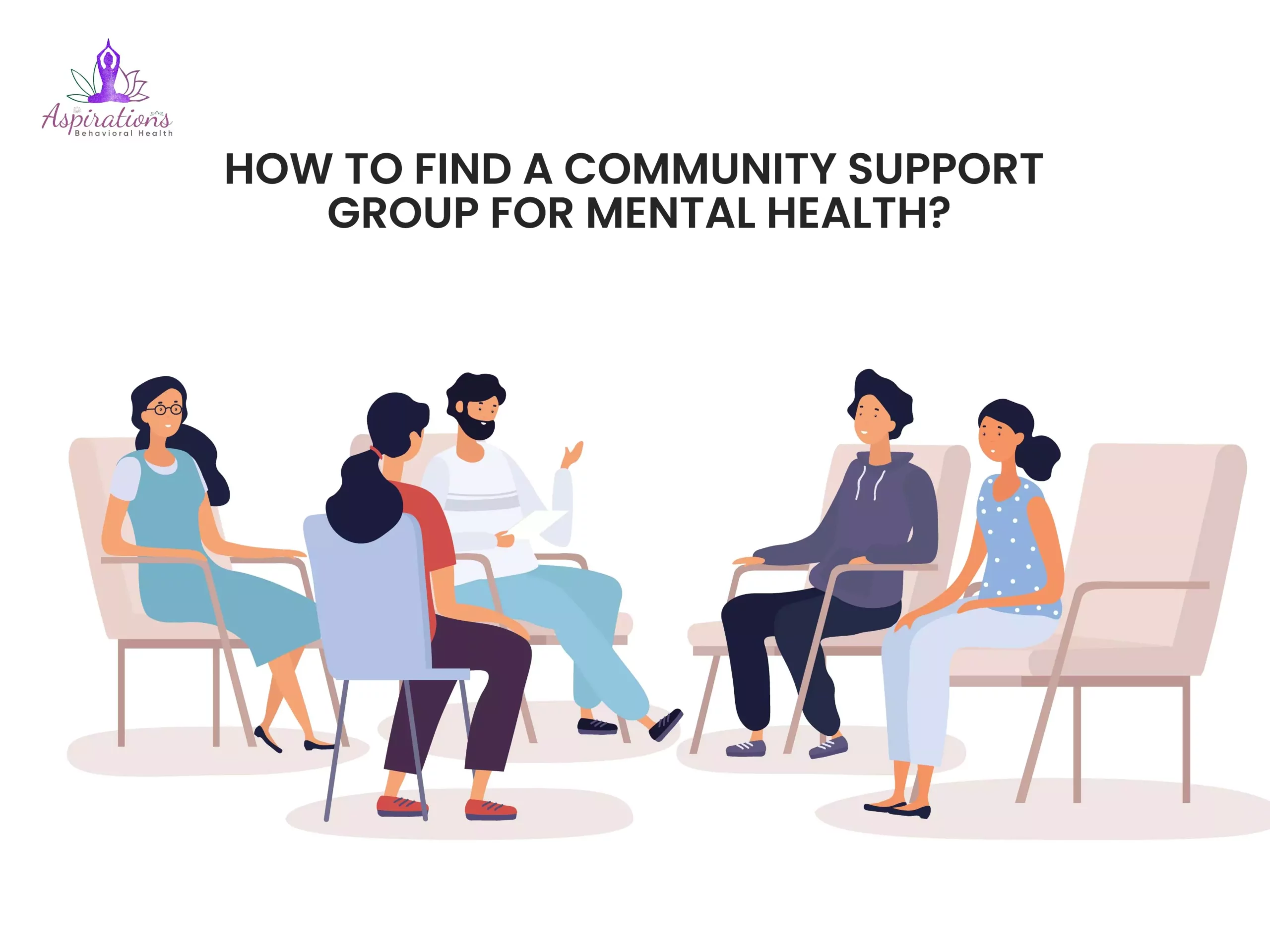
It can be difficult to locate a mental health support group. You’ll need to locate the ideal group to talk about your troubles with people who might also be experiencing them. Understanding that support groups might differ significantly in practice is crucial. Support groups come in various forms, unlike group support, which is overseen by a qualified mental health professional and provides targeted support. If you are addicted, you can form your support group by assembling other addicts of similar items. Or, if you require emotional healing, form a support group of like-minded individuals.
Questions to Ask Before Joining Mental Health Help
Groups
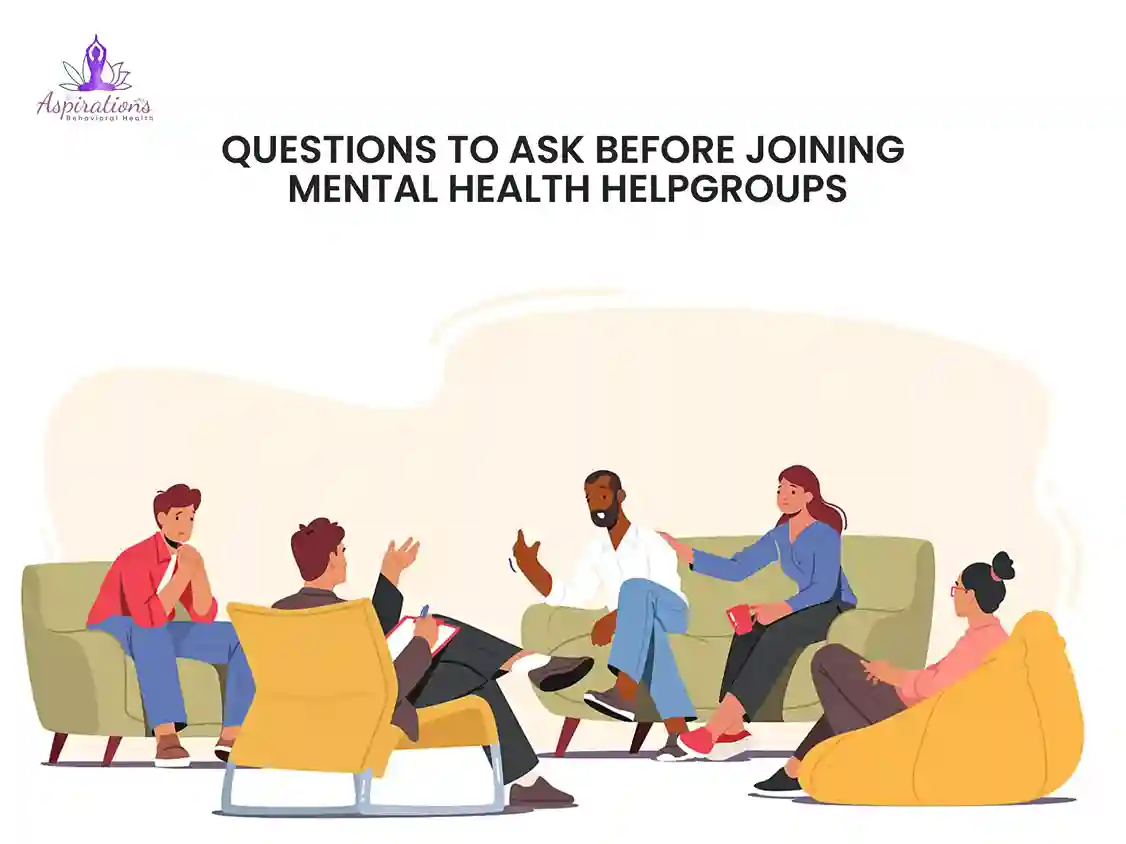
We frequently experience anxiety when joining a mental health support group because we are unsure what will happen. Every support group manages its operations in a unique method of its own. Before choosing the best for you, you should gather all the available facts.
Following are some queries that are often asked by individual who wants to enroll in mental support groups:
- Does the organization treat patients at all sickness stages or just the worst cases?
- Does the support group meet frequently or occasionally?
- Where will the group congregate?
- What can be anticipated from a typical meeting?
- What rules govern the group during meetings?
Conclusion
Mental health helps the group lessens stress and fosters morale and interpersonal interactions. It aids in skill development. A range of skill sets come together when working as a team to support one another. People can pool their talents, benefit from one another, and become more efficient.
Every nation is increasingly establishing mental support groups since research indicates that they positively impact people’s lives. It is best to sign up for a mental support group and take a test if you want to change your monotonous and stressful existence significantly.


